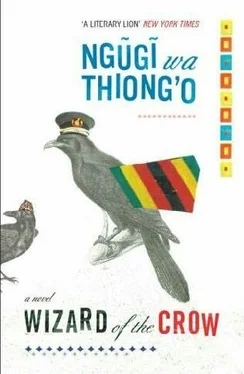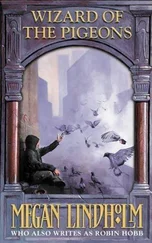Only Ambassador Gabriel Gemstone had seemed a bit frosty in his communication to his government. The Aburlrian leader had taken a step in the right direction, he said, but it was only just that: a step. Though a forward stride when perceived through African eyes, the step had serious hazards, and he could not in good conscience advise the West to embrace the reforms until the Ruler clarified this business of being the head of all the political parties.
No longer underestimating Gemstone, the Ruler quickly responded, without of course referring to the ambassador directly. In an official clarification of his remarks when introducing Baby D, he said that he would not intrude in the day-to-day operations of the parties; he would leave that to their chosen leaders. He would assume leadership of only the party that won general elections. The de facto leader of the winning party would automatically become vice president, solving the problem of succession in the event of the unexpected. With this clarification, the Ruler’s reforms received cautious acceptance from Gabriel Gemstone, which opened many doors.
The Global Ministry of Finance and the Global Bank issued a joint statement congratulating the Ruler for abandoning-actually, the word they used was jettisoning -useless schemes like Marching to Heaven; accepting in advance each and every condition the two institutions would attach to their loans; and bringing technocrats, war heroes, and proven businessmen into his cabinet. But most significant was their agreement to enter into negotiations with the new government to release frozen loans and aid packages. Kaniürü and Tajirika were invited to Washington to discuss the defense and economic policy needs of a democratic Aburlria.
All was going as well as the Ruler could have imagined. Though he had his decision and theories to thank for this goodness, he also appreciated Kaniürü’s role.
Several days after the Ruler’s birthday, Kaniürü had come to see him with a puzzling request. He wanted forgiveness. For what? Kaniürü confessed to having killed the Limping Witch and the scheming wizard, adding that the Limping Witch was none other than Nyawlra. The Ruler was so moved by his devotion that he embraced him. Thereafter, for several weeks Kaniürü could do no wrong, and when the Ruler decided to announce the birth of multiparty democracy, Kaniürü was his closest confidant. It was Kaniürü who had come up with the brilliant idea for the graphics of Baby D and the performance of its unveiling.
When the Ruler pondered the implications of Kaniürü’s act of valor, he was even more elated than at first. Nyawlra was more useful dead than alive in more ways than just the removal of a threat. He would trumpet her fate as an example to presumptuous women who dare assume male prerogatives.
His initial feelings about the elimination of the Wizard of the Crow were more ambiguous. The sorcerer had turned out to be useful after all. The claims of the Ruler’s pregnancy that he had started had allowed the Ruler to turn the tables on his detractors. But still, the ordeal!
Even now, in his residence, at the table, in bed, the Ruler shuddered on recalling the day and hour of the explosions. His intention had been to direct the open-air performance outside the grounds of the Parliament buildings and law courts so as to thwart the efforts of the so-called People’s Assembly. He was eager to win what was shaping up as a battle of wills between him and the Wizard of the Crow, and, despite the pain he was suffering, he had sensed victory. One way or another, the Wizard of the Crow would yield, and the Ruler had decided to dispatch him to the next world only after the wizard had conferred on him his occult powers. But then he felt the ballooning of his body and the contractions intensifying: he had managed to authorize only one helicopter to take to the sky and disburse Burl bills before the mobile phone had fallen from his hands. He was possessed by unbearable pain and about to explode. Before his descent into blankness, he felt as if his being was on the verge of bursting through the orifices of his body. When he later emerged from unconsciousness, he found himself mired in the darkness of his filth, still slowly escaping through the roof, blasted by the force of his corruption.
His only casualty was a forked tongue. Otherwise, and despite being exhausted, he felt tall and powerful as he lay there overwhelmed by his contribution to universal darkness.
He remained in a hypnotic state for twenty-eight hours, until his generals emerged from their hiding places, insisting that they had been busy investigating the source of the bombing. He knew they were lying but it did not matter: their explanations later became the unified story of the heroics of the Ruler and his generals as they battled terrorist bombs.
But he never forgot their reaction, and when later he had a meeting with Tajirika, one of his most trusted counselors, he reminded him of the advice the counselor had once tried to give about having a super-eye over the military.
“What did you mean?” he now asked.
“An eye to keep an eye on all the other eyes,” answered Tajirika, as if he had thought the whole thing through. “And on the chiefs of the armed forces,” he added. “Somebody who, while keeping a friendly contact with the military, would actually be checking on their contacts, conducts, and movements.”
“Do you have somebody in mind?”
Tajirika had always wanted an ally in the inner circles of power, and he suggested his friend Wonderful Tumbo.
“The officer who trained that other officer who fought with djinns?”
“Yes, A.G., who unfortunately later succumbed to sorcery and lost his job,” Tajirika said. “But Wonderful Tumbo had done wonders with him!”
It resulted in Tumbo’s immediate promotion from a chief of a police post to an officer installed in the State House as the Ruler’s General Liaison Officer.
They talked about the disappearance of Nyawlra and the Wizard of the Crow. Tajirika looked at his thumbs and realized almost suddenly that the sorcerer who had dogged his life since he had first come to his offices at Eldares Modern Construction and Real Estate, pretending to look for a job, would no longer shadow his life. His powers to ever do Tajirika harm, even a simple harm like withdrawing the protective magic he had once given him, had gone forever.
“You have conquered the Wizard of the Crow. You have triumphed over our enemies,” Tajirika told the Ruler, tears of personal gratitude threatening to spill.
For seven nights and days the Ruler thought about Tajirika’s words, for they echoed vague thoughts in his mind, and then it dawned on him ever so clearly why everything had been going so smoothly.
On the day of the autoexplosion he had not only conquered the bodily form of the Wizard of the Crow but had also incorporated his occult powers into himself. With the wizard and the Limping Witch out of the way, he was the sorcerer supreme, able to manipulate Aburlria, the West, the Global Ministry of Finance, the Global Bank, democracy, the living and the dead-the whole lot. He was now the number one sorcerer in all of Aburlria.
But he had nothing else to conquer, he moaned. No more adversaries to overcome. After sending his two beloved ministers, Kaniürü and Tajirika, to America for talks with the Global Ministry of Finance, the Global Bank, and the American government, the Ruler retreated to his private chambers at the State House, where he wept freely, agonizing over his dilemma. Even when the official hostess tried to calm him down the Ruler could not be consoled; he fumed for want of challenges from worthy adversaries.
One night his grief reminded him of tears he had hoped to see but had not seen. His wife, Rachael, had resisted his attempts to break her and had yet to beg for mercy and forgiveness. His grief at the lack of challenge now became a rage at the thought of a woman defying him and getting away with it. He called the guard permanently stationed at the entrance to Rachael’s seven-acre plantation and engaged him in idle conversation. He learned, what had been the subject of rumors for months, that late at night when people should be snoring in their beds, Rachael could be seen roaming about the yard or the house, bearing a light, a lantern, perhaps, like a ghost. To the plantation we go, he called out to his loyal biographer late one night. He wanted this moment recorded to become a centerpiece of the official biography.
Читать дальше












